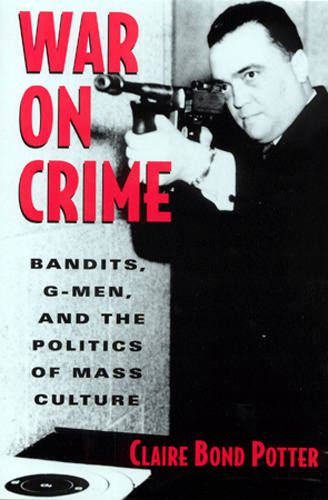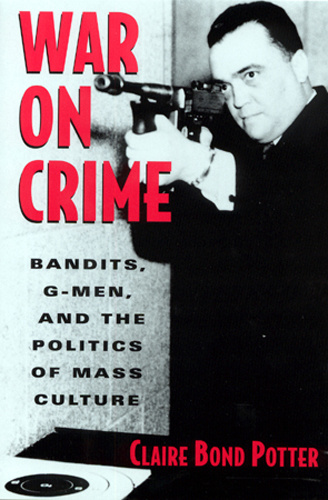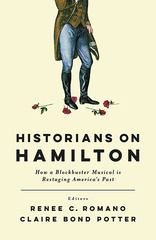War on Crime
Bandits, G-Men, and the Politics of Mass Culture
Rutgers University Press
War on Crime revises the history of the New Deal transformation and suggests a new model for political history-one which recognizes that cultural phenomena and the political realm produce, between them, an idea of "the state." The war on crime was fought with guns and pens, movies and legislation, radio and government hearings. All of these methods illuminate this period of state transformation, and perceptions of that emergent state, in the years of the first New Deal. The creation of G-men and gangsters as cultural heroes in this period not only explores the Depression-era obsession with crime and celebrity, but it also lends insight on how citizens understood a nation undergoing large political and social changes.
Anxieties about crime today have become a familiar route for the creation of new government agencies and the extension of state authority. It is important to remember the original "war on crime" in the 1930s-and the opportunities it afforded to New Dealers and established bureaucrats like J. Edgar Hoover-as scholars grapple with the ways states assert influence over populations, local authority, and party politics while they pursue goals such as reducing popular violence and protecting private property.
War on Crime introduces a whole new dimension into analysis of the evolution of the American state in the twentieth century. In Potter's exceedingly capable hands, a New Deal in national policing proves equally as significant as the more frequently discussed federalizations of social welfare, industrial relations, and economic policy.
Based on exhaustive and imaginative research, Claire Bond Potter intelligently blends political, cultural, and social history to produce the most satisfying account yet of the forces behind the FBI's rise to power and glory during the Dillinger days of the 1930s.
No one who reads Potter will any longer be able to separate the cultural development of the period from the growing role of the FBI, which staged a social coup in legitimizing its professional services in the 'war on crime.'
CLAIRE BOND POTTER is an associate professor of history at Wesleyan University.
Prohibition, crime, and federal policing
Scientific policing, masculinity, and bureau reform
The making of a crime wave
Romance, bandit identity, and the rise of celebrity bandits
Kidnapping, federal policing, and the role of the public in the war on crime
John Dillinger as political actor
The Barker-Karpis Gang, surveillance, and the victory of federal policing
Scientific policing, masculinity, and bureau reform
The making of a crime wave
Romance, bandit identity, and the rise of celebrity bandits
Kidnapping, federal policing, and the role of the public in the war on crime
John Dillinger as political actor
The Barker-Karpis Gang, surveillance, and the victory of federal policing






